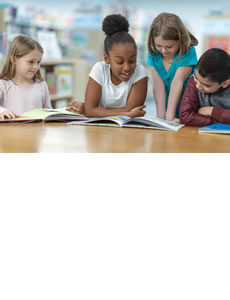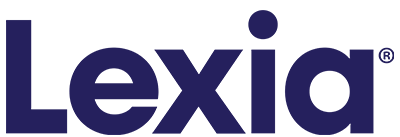
Confident teachers can help all students succeed.
Students must read well to perform well, and educators know literacy is a cornerstone for success across all core classes. Yet, only about half of teaching institutions offer training in the science of reading. This gold-standard body of research provides proven, evidence-based practices about how to best teach reading and support students of all abilities. Professional learning solutions based in the science of reading can empower educators of grades Pre-K–8 with the deep knowledge to be literacy and language experts.
Science of Reading

The Best Possible Literacy Support for Students
The science of reading is the gold-standard body of research that provides educators with foundational knowledge about how students best learn to read. We spoke with literacy education authority Dr. Louisa Moats about the professional learning teachers require, the importance of brain science, and the relationships among language, reading, and spelling.

Achieving Literacy for All
For decades, educators and policymakers have debated about the best way to fix the pressing problem of low literacy rates. In this blog post, we dive into the history of different literacy approaches and how we got to where we are today.

Reading is a Fundamental Human Right
Dr. Maria Murray is dedicated to helping others understand how we learn to read, how to teach literacy effectively, and why it matters. In this podcast, learn why reading is comparable to medicine, how to create empowered readers/writers, and why literacy is a “defining movement” in the 21st century.

1 in 10 U.S. Students are Emergent Bilinguals
The science of reading tells us how the human brain learns to read and how teachers can best assist their students with literacy. Now, literacy research is expanding to support an important demographic: Students learning English. Read how the experts think we can improve Emergent Bilingual education.
Professional Learning

Teachers Make the Difference
A skilled instructor can change the lives of students. But, many educators are not prepared to teach all students to read, especially those who struggle. Here are 10 reasons, based on research, why professional learning on literacy is essential for raising reading achievement and empowering educators.

Rethinking Professional Development
One of the most important factors in student achievement is teacher quality. This paper covers the difference between professional development and professional learning; the connection between professional learning, teacher quality, and better student outcomes; and the qualities of effective professional learning programs, specifically as they relate to successful literacy instruction.

Eye Opening for Educators
Teaching reading requires a deep understanding of the processes and science behind it. In this webinar, education leaders can learn how to invest in proven learning science for top outcomes and how to improve teacher technology tools in the classroom.

The Urgency of Literacy for Adolescent Learners
With 85% of public-school curriculum being delivered via reading text, literacy is a cornerstone for success across all core classes. All teachers in grades 4–8 need the appropriate training and tools to meet the needs of students who struggle with reading.

